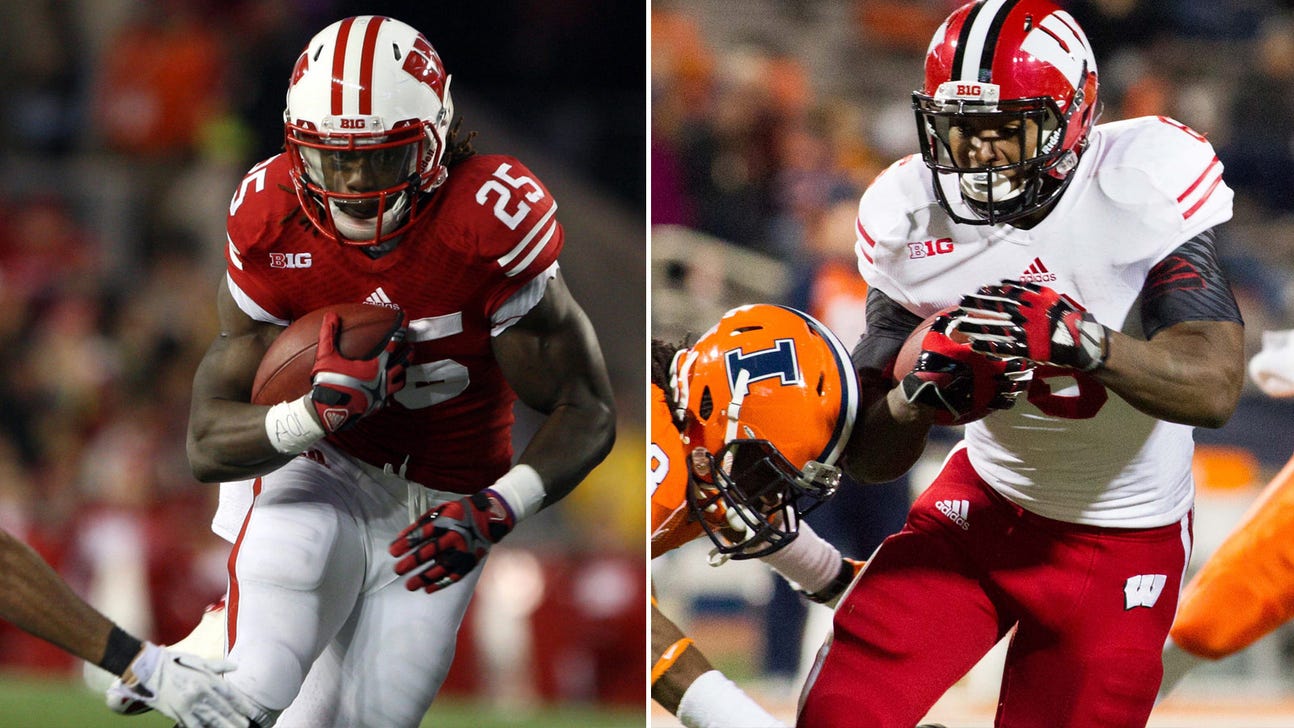
Badgers' key to beating Illinois? Run, run, run

MADISON, Wis. -- The equation this week is relatively simple, really. Wisconsin possesses one of the best rushing offenses in the country. Illinois, meanwhile, is withering away this season with one of the worst rushing defenses in college football.
Add it up, and the math presents all the makings for a colossal mismatch when Wisconsin (3-2, 0-1) plays host to Illinois (3-3, 0-2) at 11 a.m. Saturday in Camp Randall Stadium. One side has power and speed, and the other can't stop a nosebleed.
"That's our Achilles' heel," Illinois coach Tim Beckman told reporters this week. "We haven't stopped the run the last two weeks, or really the whole season. We've got to stop a really good running back. They've got the whole offensive line returning. It's Wisconsin football."
Wisconsin's rushing offense of 331.4 yards per game not only leads the Big Ten, it also ranks third in the country. Illinois enters Saturday's game dead last in the Big Ten in run defense, surrendering an average of 249.5 yards per contest, which ranks No. 119 out of 125 qualifying FBS teams.
Just how bad is Illinois' run defense relative to conference teams? Consider that no other Big Ten program is within 37 yards of the Illini's pace. And 11 of the 14 Big Ten teams have a run defense allowing fewer than 140 yards per game.
"You have to make tackles and you have to make plays in a football game to win a football game," Beckman said. "You don't know when those times are going to come, but we have got to play better at the fundamentals. And the fundamentals are getting off blocks and making tackles."
Illinois' first two Big Ten games this season have served as an indictment on the team's inability to stop the run. Purdue accumulated 349 yards rushing during its 38-27 victory against Illinois last week and averaged 7.8 yards per carry. During Illinois' 45-14 loss to Nebraska two weeks ago, the Cornhuskers rolled to 458 yards on the ground. Two players, Ameer Abdullah and Imani Cross, rushed for more than 100 yards.
Wisconsin's passing attack has struggled considerably this season. This week, Badgers coach Gary Andersen announced he would use both Tanner McEvoy and Joel Stave at quarterback. But this appears to be as good of a week as any to ease the team into that transition because passes likely will be few and far between.
Badgers tailback Melvin Gordon already leads the nation in rushing yards per game (174.2), and he could boost that total against Illinois' battered defense. Last week, Gordon established a new career high with 259 rushing yards against Northwestern.
"He is an unbelievable force out there on the football field," Andersen said. "Any time he catches it, he has the ability to go the distance. . . . He's a great kid and he deserves what he's getting in the run game."
While Wisconsin's pass offense has faltered, Gordon's workload has increased. In the team's first three games, he averaged 15.3 carries per game. Over the last two games, Gordon is averaging 29.5 carries per game -- not that he's complaining.
"I'm getting the carries obviously because we need to get the ball moving and we need somebody to make some plays," Gordon said. "They call on me to get the job done. You're not really counting carries out there. You're just trying to make plays out there and make it happen for the team."
The demise of the Illinois run defense has been startling because it has worsened in each of Beckman's three seasons there. In 2012, Illinois ranked 11th out of 12 in the Big Ten, allowing 193.9 yards rushing per outing. A year ago, Illinois was 12th out of 12, allowing 238.6 yards rushing a game.
Those numbers represent a direct contrast to what Beckman accomplished as a defensive coordinator at Oklahoma State (2007-08) and as a head coach at Toledo (2009-11), when the team's run defense improved each season.
"We've got to continue to stretch our players to get them in that position so they can make that play," Beckman said. "And we've got to practice it and practice it and practice it until it becomes second nature to them."
The issues are only part of the reason Beckman's tenure has been as a disaster. Illinois is just 1-17 in Big Ten games under Beckman, and 14 of those losses have come by double digits, including two already this season. This week, he addressed the idea that he was fighting for his job.
"I take one game at a time," he said. "We've got to go into Wisconsin, a very, very good football team. A very, very good running football team. We've got to play up to our potential, coach up to our potential and do all the things that are necessary to win a football game.
"My sole purpose is for these football players. I want them to experience what it's like to be a winner, and I'm going to give them everything that I've got. I know this coaching staff is not any different than we coach each and every week."
Among the most central coaching points for Beckman this week will be to stop Gordon -- a task that is far easier to say than to do. Gordon's rushing average per game is higher than 65 of the 125 teams in the FBS, including 29 power-five conference teams.
Gordon noted it had been difficult to enjoy his individual success because the team had not performed up to expectations thus far.
"You can run for 260 yards or 300 yards a game, but if you're losing, what does it mean?" Gordon said. "It doesn't mean anything."
It figures to mean something this week, when a big game from Gordon against a porous Illinois run defense will almost assure a Wisconsin victory at home.
Follow Jesse Temple on Twitter